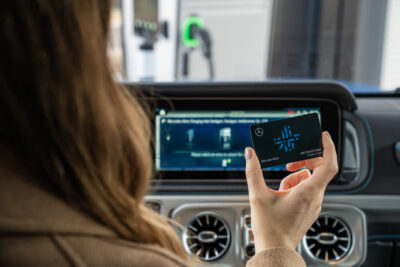France relaunches EV leasing scheme for low-income households
France’s “leasing social” for electric cars made a surprisingly short debut at the start of 2024, lasting only one and a half months. The budget, initially intended to last the entire year, was exhausted after approximately 50,000 leasing contracts were approved under the special low-income conditions. At the time, the budget stood at €650 million, enabling eligible applicants to lease an EV for as little as €50 per month.
The reason for the scheme’s suspension in February 2024 was thus its success. The government emphasised this when announcing its revival: “This incentive has truly democratised the ecological transition by enabling low-income households and new target groups to access an electric vehicle,” the Ministry of Economy and Finance stated.
The conditions in this new round of funding are similar to those of the 2024 model, but the required personal contribution will be higher. The budget difference alone illustrates this: €650 million versus €370 million cannot subsidise 50,000 EVs to the same extent. In 2024, France contributed an impressive €13,000 per vehicle.
Target group: low-income workers dependent on a car
The target group remains unchanged. People with an annual “taxable reference income” of less than €15,400 remain eligible. Another unchanged condition is that applicants must rely on a personal vehicle to commute to work or conduct their professional activities.
Applications will be accepted from 30 September 2025. Of the approximately 50,000 EVs that will be subsidised, the Ministry stated that “at least 5,000 vehicles will go to people living or working in municipalities where air quality particularly needs improvement.” Dividing the total budget (€370m) by the target number of EVs (50,000) results in an average subsidy of €7,400 per vehicle. However, the subsidy per car is capped at €7,000 (compared to previously €13,000), which explains why the government states “at least” 50,000 vehicles will be supported – if the budget stretches further, it could include additional cars.
The funding aims to reduce leasing rates to attractive levels for low-income households. Leasing companies are expected to “offer deals below €140 per month or even less,” according to the Ministry. No monthly payment may exceed €200. This differs from the first leasing round, where EVs were available for €50 to €150 per month.
The financing basis of the social leasing scheme also changes. Instead of using state budget funds, the scheme will now be financed through energy-saving certificates (CEE). The programme remains attractive given that the standard environmental bonus for buying an EV in France has dropped this year from a maximum of €7,000 to €4,000. The €700 million environmental bonus budget for 2025 is expected to support the purchase of around 200,000 EVs (with €10 million reserved for used EVs and retrofit conversions).
Environmental bonus scaled by income
The “bonus écologique” continues to be scaled according to buyers’ or lessees’ income, and remains linked to the CO2 emissions involved in producing the vehicles and batteries. It now ranges between €2,000 and €4,000. Back in February 2024, President Emmanuel Macron reduced the bonus for high-income earners by €1,000 via decree and scrapped it entirely for businesses. According to the Ministry of Finance, the reduced subsidy levels since January are acceptable for the public: “Thanks to economies of scale and progress in battery technology, EV costs have fallen and their share of total vehicle sales has increased, reducing the need for subsidies,” the Ministry stated back in October 2024.
However, this has only partially proved true: France is facing a slight decline in EV registrations in 2025. Between January and May, registrations fell by 7.1% according to ACEA statistics. This is likely linked to reduced incentives, mirroring Germany’s experience last year.
economie.gouv.fr (in French)





0 Comments